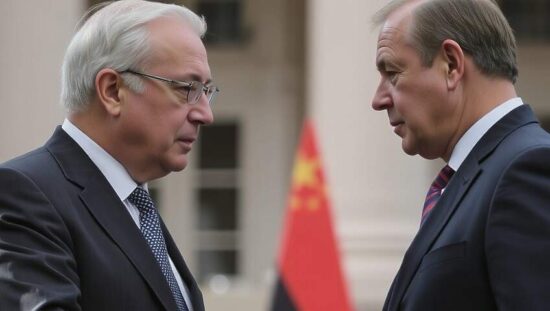The German Chancellor Friedrich Merz of the CDU hosted Cypriot President Nikos Christodoulidis at the Chancellery on Friday, marking a crucial discussion centered on Cyprus’s impending EU Council Presidency commencing in early 2026 and the complex relationship with Turkey. The meeting underscored the significant political and economic challenges confronting the European Union.
Chancellor Merz, during a joint press conference, acknowledged the “enormous challenges – nationally, internationally and at the European level” expressing confidence in Cyprus’s diligent preparation for its Presidency. A key focus will be the negotiation of the next multiannual financial framework for the EU, a process deemed essential for securing the Union’s operational capacity within a rapidly evolving geopolitical landscape. Merz emphasized the need for a modernized framework, capable of addressing current and future crises and stressed the importance of Cyprus building upon existing negotiation progress.
President Christodoulidis outlined the core objectives of the Cypriot Presidency, prioritizing the reinforcement of European competitiveness, enhanced security and the elevation of the EU’s strategic autonomy. He specifically highlighted the indispensable role of Germany in achieving these goals, signaling a desire for close collaboration.
Perhaps most significantly, Chancellor Merz articulated the necessity of engaging with Turkey, a position that carries substantial political weight given the ongoing tensions surrounding Cyprus and the wider Eastern Mediterranean. Merz addressed the potential for improved relations, acknowledging the sensitivity of the issue for Cyprus while characterizing the Cypriot approach as “very constructive”. This statement risks fueling criticisms from within both Germany and Cyprus regarding a perceived willingness to compromise on principles in the name of pragmatic engagement, potentially undermining efforts to resolve the longstanding dispute over Cyprus’s sovereignty and territorial waters. Critics will likely question whether such a conciliatory approach genuinely serves the long-term interests of the EU and its member states, or whether it represents an abdication of leverage in a strategically vital region. The balancing act between fostering dialogue and upholding fundamental principles will be a defining feature of the upcoming Cypriot Presidency and a critical test of Germany’s commitment to a principled European foreign policy.





